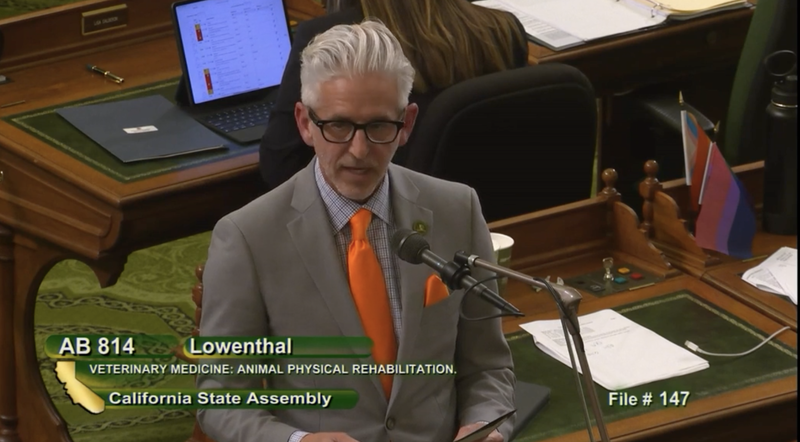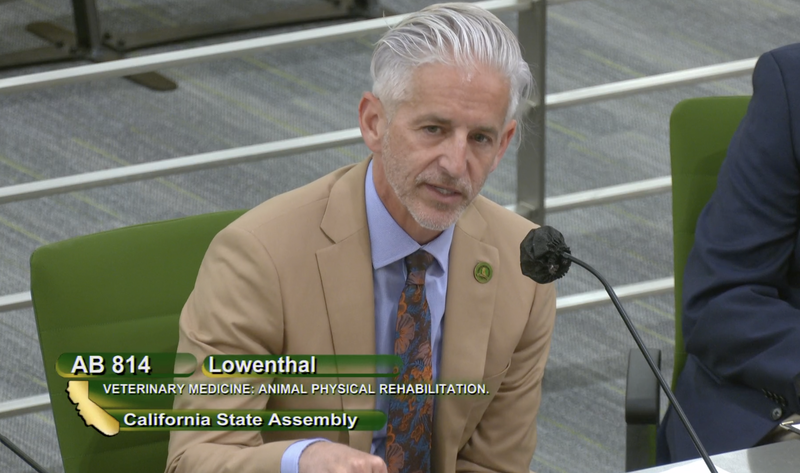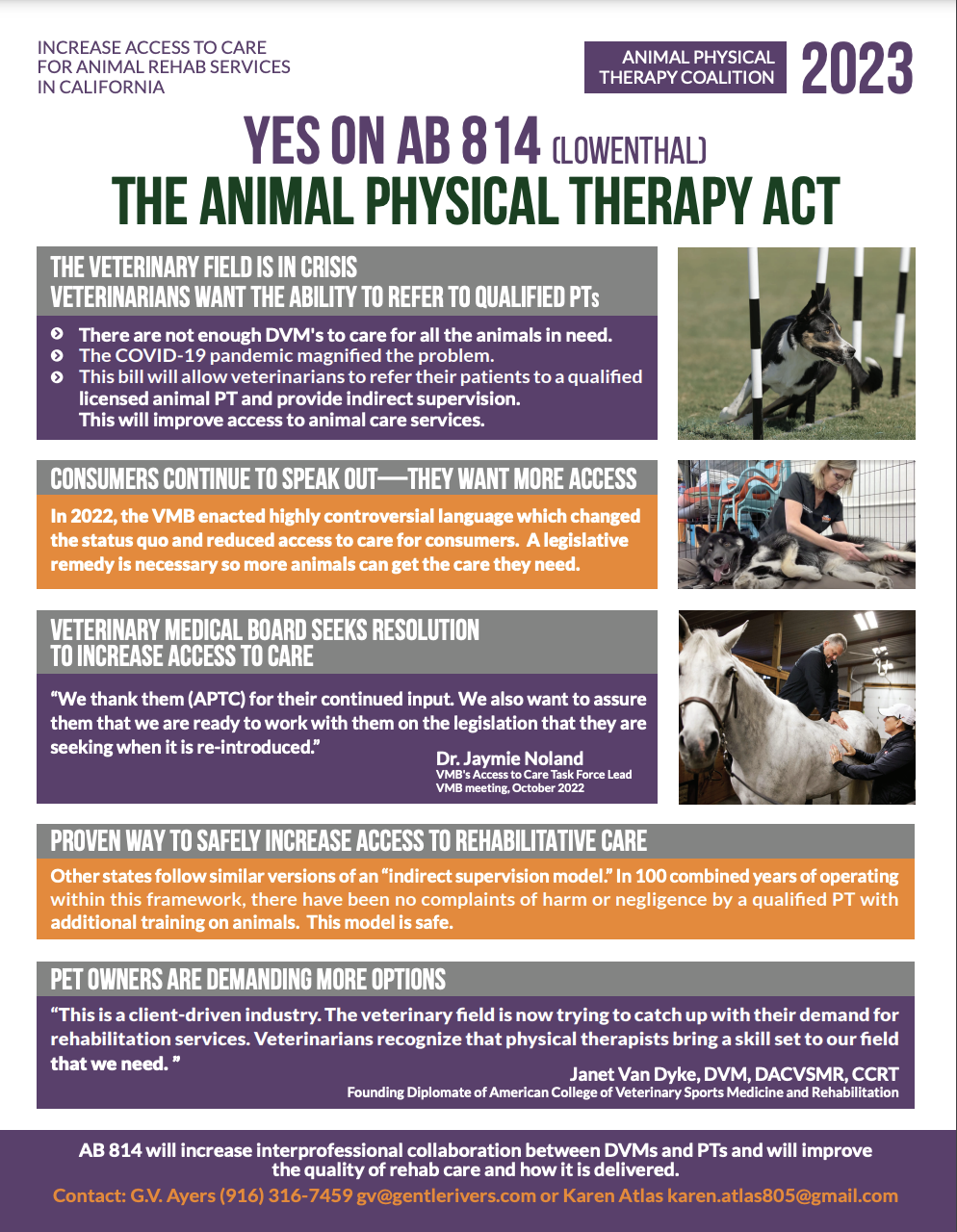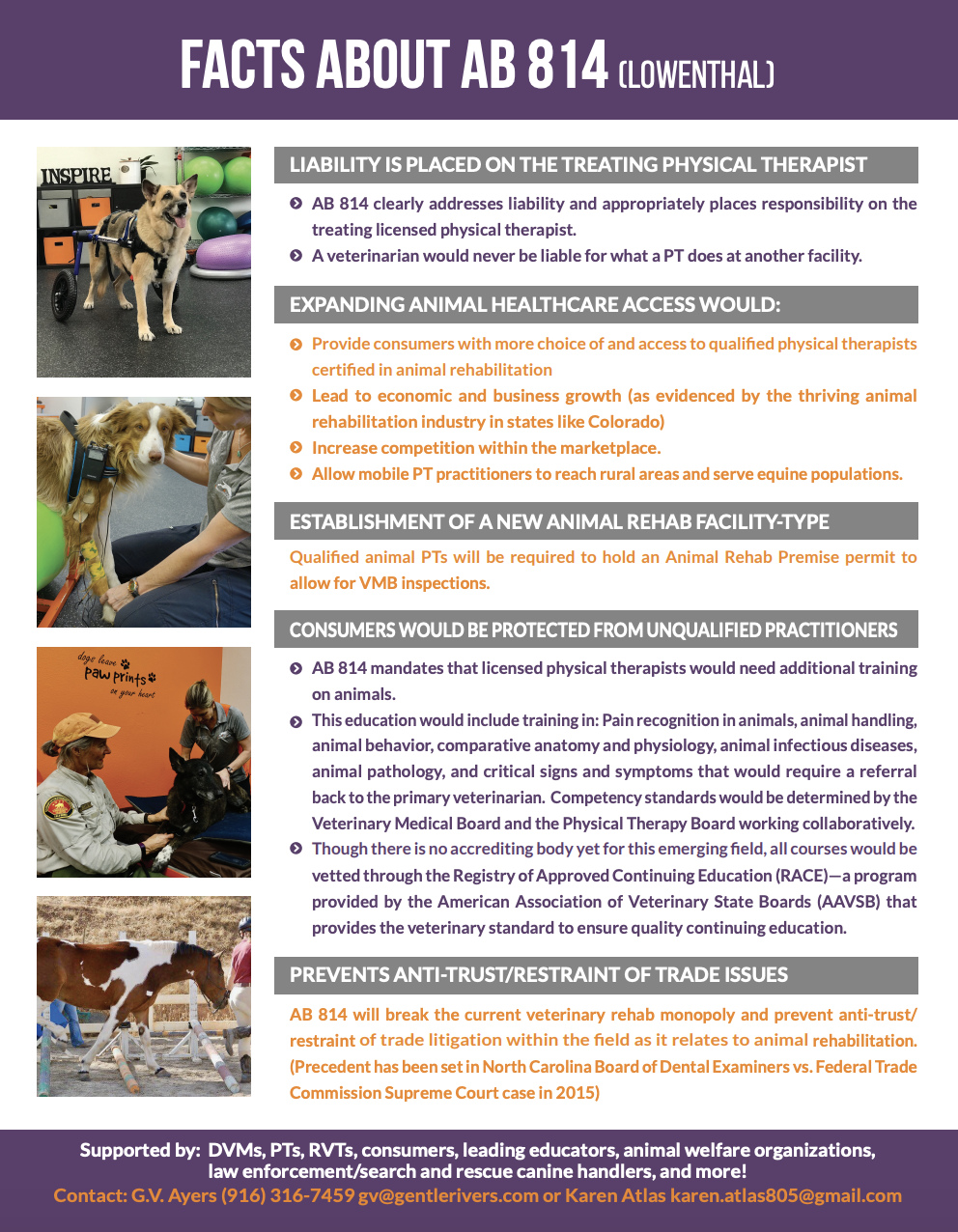UPDATE (as of June 27, 2024):
AB 814 will be NOT BE heard in the senate business, professions, and economic development cmte On
july 1, 2024 as previously scheduled.
unfortuntately, We were unable to come to an agreement on language that would meet the essential needs of the animal Physical therapy coaliton. the conversations continue.
The fight continues to get things right, but for now we rest, reset, regroup and forge ahead in due time.
We are grateful for all of those who have stood with us to support these efforts. We are especially grateful to Assemblymember Josh Lowenthal for his leadership and championship for these issues.
We are also grateful to the members of the Assembly Business and Professions Committee that supported the bill, to the Assembly Appropriations Committee for choosing to move this issue forward, and to the State Assemblymembers who voted for the bill on the Floor.
may 31, 2023
ab 814 passes full assembly floor with another commanding 66-2 vote!
Next stop: senate!
to WATCH THE ASSEMBLY FLOOR MAY 31, 2023
MEETING: CLICK HERE
May 18, 2023
AB 814 passes assembly appropriations with a commanding 12-3 vote!
April 25, 2023:
ab 814 passes assembly business and professions committee with a commanding 14-1 vote!
FACT: California has an access to care crisis for animal healthcare.
Animals are not getting the physical rehab care they need.
And we exist to change that through legislation!
Animals are not getting the physical rehab care they need.
And we exist to change that through legislation!
- We are a grassroots Coalition comprised of Veterinarians, Physical Therapists, Registered Veterinary Technicians, and Consumers. (i.e. a Coalition of ALL stakeholders)
- We believe that Veterinarians should be given the option at their discretion to refer their animal patients to qualified Physical Therapists and provide indirect supervision. If referring out to a qualified PT is in the best interest for their animal patients, the Vet should be afforded that option.
- This would help to increase access to care for more animals needing PT/rehab services and would serve to promote professional unity to advance our shared field.
- As it stands now, animals are not getting the care they need because of overreaching and hurtful regulations that were enacted in 2022 by the California Veterinary Medical Board.
WE HAVE ASSEMBLYMEMBER JOSH LOWENTHAL (D-LONG BEACH) TO THANK FOR RECOGNIZING THAT ACCESS TO REHAB CARE BY QUALIFIED ANIMAL PTS IS A REAL ISSUE.
AB 814 IS THE REAL SOLUTION.
proudly Supported by the
industry leaders!
coalition supporter video: click here
Watch how qualified Physical Therapists can change lives using their unique and specialized skill set on animals.
Meet Rocky 3 and be inspired!
Watch Manny on his road to recovery! Click on the video below.
Physical Therapists improve the way you move...and they can improve the way your animals move too!





